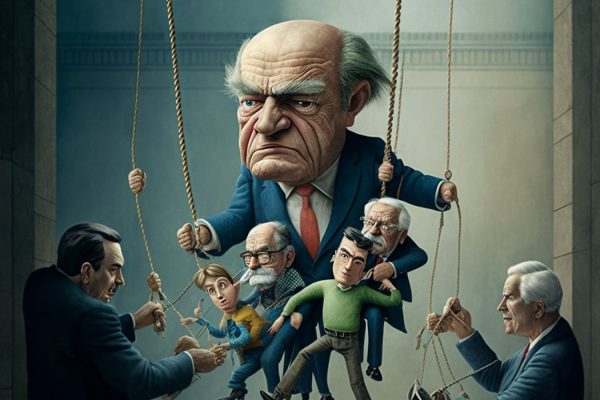Over the last few decades, income has fallen for the middle and lower classes while the costs of housing, health care, and higher education have soared. This has been caused by unregulated monopolies, globalization, soft corruption, and shortsighted economic policies. In today’s Instaread, The Economics of Discontent, the economist Jean-Michel Paul points out how Western governments continue to ignore this avalanche of problems—and what the rest of us can do about it.
The Rich Are Getting Richer
We are witnessing a new Gilded Age where big monopolies abuse their market position to enrich their managers and owners at the expense of everyone else. In the old days, these monopolies were railroads and oil trusts. Today, they’re the tech monopolies that grow while regulators look the other way or take half-measures.
Once a monopoly is established, it becomes difficult to challenge. Monopolies have unique control of resources and universal brand recognition, which raise barriers to market entry and allow them to overcharge because no competitive threats exist. As monopolies have flourished in the United States, deterring innovation and stifling competition, strong government action has become warranted. At a minimum, the acquisition of start-ups by monopolies should be made difficult or even forbidden. At the extreme, the break-up of companies like Microsoft or Google should be actively considered.
Call to Action
The foundations of our economic systems are shaking, and the pain has become intolerable. We need to rethink the structural changes that allowed asset owners to become richer while the vast majority became poorer. And for this, we need dedicated, focused governments that are less susceptible to special interests. They need to create a new social contract that makes the system fairer by ensuring that new policies won’t create a few big winners and a majority of losers.
We also need to consider whether our societies can still evolve. If they can’t, history teaches us that most dissenters will make erratic decisions until the political-economic system collapses and a new one emerges in the distant future, following an intervening medieval period marked by chaos. Yikes!
About the Author
Jean-Michel Paul is CEO of the investment firm Acheron Capital and co-founder and chief scientific adviser at the digital insurance market AkinovA Ltd. He is also a professor at the Solvay Brussels School of Economics and Management. His work has been regularly published in leading business publications.
Read our full summary of The Economics of Discontent . . .







